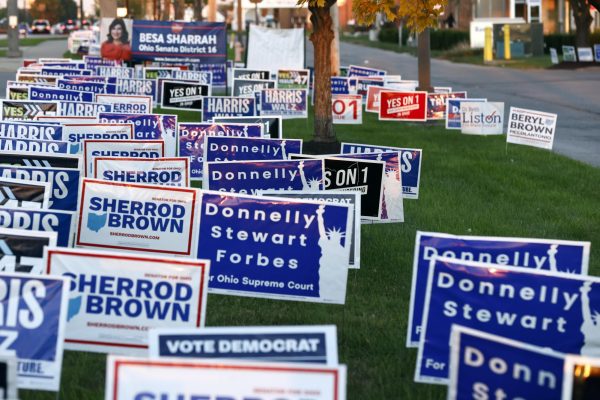What’s Left: The Role of A Politician’s Spouse
The most peculiar of the non-elected officials in any political system is the politician’s spouse. It seems to be a de facto requirement for running for office. Being a loving husband or wife is relatable to the American public. It’s typical, it’s what voters expect. But stop for a second and think about that. Why is a relationship a resumé builder?
Although not a paid staffer, a spouse is often seen on the campaign trail, knocking on doors and making their own speeches. They are a candidate’s best character witness. The spouse’s picture might be included in promotional mailings or at the bottom of a fundraising email asking you to contribute to the cause. Sometimes a spouse will attend an event for their politician significant other. There are few professions that operate like that. When it comes to running for a local office or even for Congress, a spouse can continue with their own career and their own life. But running for the presidency entangles the entire relationship.
Running for president requires months of travel, time apart and scrutiny of the national media. Winning the presidency means moving, losing freedoms such as being truly alone and becoming the face of the nation.
Once elected, some spouses keep to themselves and simply stand by their significant other, while others take on nuanced roles that have lasting impacts on our country and the world. First Ladies such as Eleanor Roosevelt and Hillary Clinton had immense influence on policy, such as crafting the Universal Declaration of Human Rights and healthcare policy, respectively. After President Woodrow Wilson had a stroke, his wife Edith essentially ran the executive office. She became the gatekeeper and deemed what was, and wasn’t, important for her husband to see. Until the end of his term, Edith held up the presidency on her shoulders. First Ladies have impacted American policy, culture, fashion and made great role models for the public. They were and still are American icons in their own right, regardless of their husbands.
This leads me to my next inquiry. What impact and role would a First Man take on? The 2020 Democratic primary election is already underway with five women and one gay man with their hats in the ring. First off, I would like to make the argument for calling their spouse “First Lad” in order to keep the FLOTUS (First Lady of the United States) acronym in tact (because FLOTUS is an objectively fun word to say.) Second, the office of the presidency will fundamentally change with the election of a female or gay president. It will also monumentally change how we define the boundaries of a public relationship. There are plenty of families where women are the breadwinner and the father stays at home or gets paid less. There are plenty of gay marriages in America. But to see that represented in the highest elected office leading the free world will have powerful and important societal impacts on how the American family and marriage is defined.
But what if the president isn’t married? Cory Booker is a former mayor, two-term Senator with a national profile and a strong brand. There are aspects of his resume that are negative, like his connections to Wall Street and Big Pharma, that may turn off more liberal democratic primary voters. But a prominent caveat to his candidacy is the fact that he is not married. If he were to win the presidency, he would be the first unmarried president since Grover Cleveland, who got married while in office in 1886. It will be curious if this fact will affect his race.
The marriage question is one that haunts female candidates even more. When you Google prominent female politicians, such as Representative Alexandria Ocasio-Cortez, the first word that pops up after her name is “married.” This means that more people are searching to see if she has a partner than her actions as a representative. The independence of a female politician is still questioned in 2019.
Whether we like it or not, relationships are a big part of politics. Instead of ignoring this, we should engage with it head on. While I don’t think we should be searching for our representatives to be more transparent about their relationship status or the state of their marriage, I think there is something to learn from them. Presidents, senators, congresspeople, mayors—they represent us in democratic way, but they also represent us with their humanity.
Contact Glynnis Harvey at [email protected].







